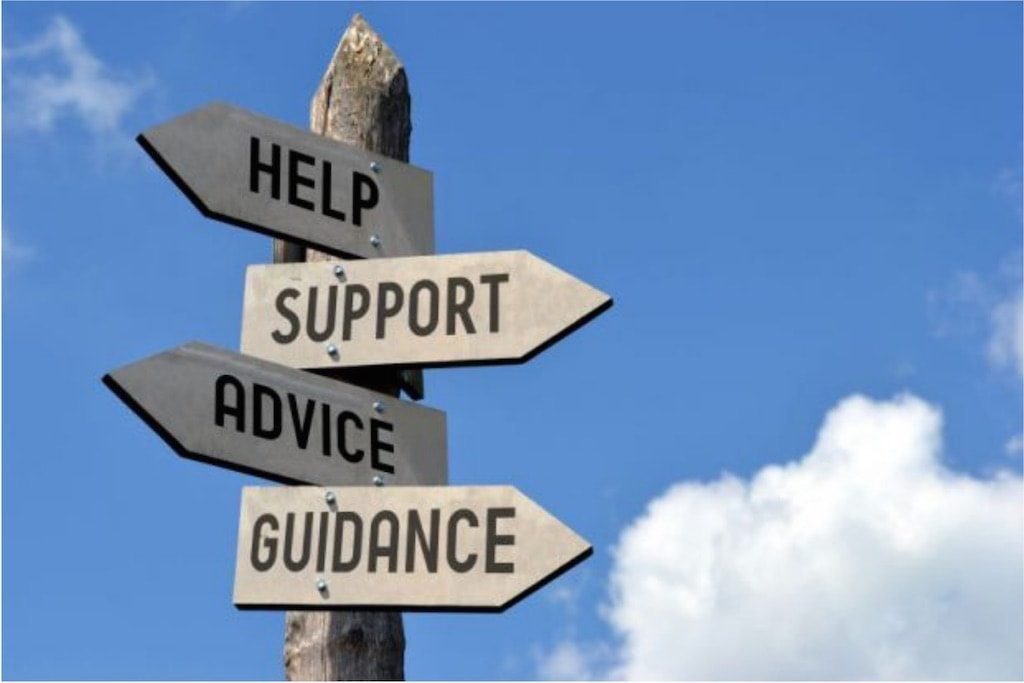
Most people want to run their own small business, some do it after reading countless business books, others “wing it”. The rich often say that you can never stop learning, so I want to provide you with some advice that I wish someone had told me when I started out.
12 invaluable bits of small business advice
12. Develop a daily Profit and Loss statement
This one is admittedly, the strangest on this entire list, but it will make sense in a moment. Developing a daily profit/loss statement each day is a great idea, it allows you to visualize your earnings, profit and loss. It allows you to see what areas of your small business are doing well, and which are not.
I was admittedly quite good at this, it was about the only thing I had done right (hence I put it first) on the list. I was able to find that selling one of my personal favorite products was actually harming my small business, so I never ordered any more of them and just got rid of whatever stock I had.
Whilst it was hard in the first place, I didn’t even know how to write a profit/loss statement, I learned from Tony (more on him in a moment). He taught me how to read one, which helped when it came to starting to invest my money in the stock market, and he taught me how to create one! Had Tony not taught me, I would probably have continued to sell that unprofitable item for many more month, costing me more than it was ever worth!
11. Build your business around your life
When you start your own business- especially your own small business, it becomes your life. You get up, you do something for your business, you eat breakfast, you do something for your business.
I found that my personal and business lives became very much intertwined. In fact, it became something incredibly difficult to differentiate, even to the point of now- I see my wife at work (as in I employ her). I also see my next door neighbor as he is one of my employees, I normally like to say that next I’ll be employing my dog!
When I come home, unlike my employees, I don’t sit with my feet up watching Netflix, but I continue to work. I am always on my computer doing research on Stock X or on a new business idea, and I have my wife beside me, whether I am in the office or at home!
10. Start Small
When I started my first business, I had my sights set one one thing- becoming a billionaire. Due to this, I tried to do everything on a large scale- for instance, my first business was an online store. My online store needed stock (ie. it wasn’t a dropshipping site), instead of buying what I needed, I bought ten times the amount.
Whilst this may have been a good idea at the time, most of the stock sat there doing nothing. I bought more stock than I needed on the premise that my site would rank #1 on Google, luckily it did. I ended up running out of stock, and hastily buying more- but that is beside the point, it was stupid.
Whilst I thought it was a great idea at the time, the money I spent on excess stock, could’ve been invested. But instead, the money went into stock sat in a warehouse, costing me every month.
9. Associate yourself with other business owners
Most of your friends probably don’t run their own business, so they won’t have the same mindset you will. Most of your friends, statistically speaking, work for someone else, they won’t understand why you run your own business.
When you associate with other business owners, especially small business owners, you associate with people with the same mindset. When you have an issue with your business, you can talk about it with people who have probably faced it. When you talk about it, you’ll probably find that the one issue you can’t seem to solve, has an easy answer.
When I first started, I knew no one who owned their own business, but soon I found a few people who did. When I did, we found that talking to each other about our pressing business problems, had easy solutions. For instance, I had a problem with my accountant not doing the work properly, and to a high standard. When I told my friends about this, one of my friends recommended a different accountant- my current accountant.
8. Try to find a mentor
No matter how many business books you may have read, they can’t teach it all, but a mentor can. I found my mentor through a friend of mine, my mentor was called Tony, he was a construction company owner. He taught me how to effectively spend my time, and delegate the unimportant tasks to employees or freelancers.
Tony also taught me the importance of cash flow, due to my original small business, most of my income came in summer and fall. When Winter came around, especially December, my business was operating at a net zero or a loss. Tony taught me the importance of a secondary business/source of income, so I got into the stock market.
Tony has been in business longer than I’d been alive- he was always full of small business advice. Tony never told me what I needed to do- rather he would break it down into chunks, and make me make the final conclusion. Tony was also great because he posed questions when I had new ideas, for instance, I wanted a dropshipping site. When I asked Tony, he told me how much this would likely cost me in the long run, as such, he saved me so much money.
I have now taken to mentoring my own student- Stephen, he’s the one that got me into real estate. Thanks to the advise of Tony, I have now been able to help Stephen’s businesses thrive. Not only have I saved him from making mistakes, I have also been stopped from making my own mistakes. One day, I hope that Stephen will too have his own student who he can pass the knowledge to.
7. Don’t be afraid of growing your small business
When I started out, I was afraid of starting my own business and actually doing it for that matter. But I wish I hadn’t been so afraid, if I hadn’t, I would’ve made so much more money! I was afraid that my business wouldn’t succeed, but this only made my odds worse– PLEASE don’t fall into this trap. Just get your business idea, get a business plan, and start your small business. You will certainly thank me in the future- after all, most people don’t start their own business out of fear.
When Stephen and Tony both started out, they were both worried about funding for their small businesses. When I spoke to both of them regarding this article, they both said “I wish I had never been worried about finding- it was stupid!”
I have to say that when I hear this as an excuse for not starting your own business; it’s just poor. In most developed countries, a lack of funding isn’t an issue, most small businesses can get small business loans. This helps those small business to get up and running and (obviously) to help them expand.
6. Learn from your mistakes- Get them out of the way
When I started my first business, even though I had a mentor, I still made errors that cost me. For instance, my biggest mistake was forgetting to get a bank account, this harmed my business as I turned away customers. Now, getting a bank account is the first thing on my agenda when I start a new business.
You too will find that you make mistakes, no matter how hard you prepare, it’s better to just get them over and done with. The mistakes you make now with your business will be the best money making schemes you make in your whole career!
Literally no one, we have studied in our Surprising Wealth Stories segment have hit the ground running. They too have made mistakes, and look where they are now! They’re either millionaires, billionaires or captains of their industry, if they have made mistakes and learnt from them, you can too!
5. Do the best you can
This may seem easier said than done, but it’s truly the best motivator for any small business owner. When I start a new contract or a new business, I always ask myself “Is this the best I can do?” If my answer is “No” then that new business or contract is discarded and a new one is brought up.
By asking yourself that one crucial question, you can make sure that you are happy with your new business. If your heart isn’t in your new small business, it will not succeed, and that’s what you find by asking yourself the question.
When you were at school, your mother probably told you “As long as you tried your hardest, that’s all that matters.” This is essentially the exact same thing, except it’s no longer a chemistry test, but your own small business. As long as, when the dust has settled, you can stand and look someone in the eye and say “I did the best it could!” No one can ever ask you to do anymore, they just can’t.
4. Don’t underestimate the amount of time, effort and persistence you’ll need
This is by far the most underestimated variable for people looking to start their own small business. Most people start their own business so they have the chance to work less, but in reality, your are bogged down in work. This is why most businessmen tend to get up several hours before work starts!
When I first started, I had something (and someone) to prove wrong, but I had a mountain of work each day (something I affectionately named Mount. Kuten). Before I started my own small business, I used to get up at 6:45 and go to sleep at around 23:00. After, I started my small business, it was more like 4:30 am and 1:30 am (yes, in the morning).
When I used to tell people about this, I was often told “That’s unhealthy if you keep on doing it,” I’ve been doing it for 15 years and I’m still not dead (yay!) I liken it to the phrase “We’ll sleep when we’re dead!” It’s essentially the same principal.
But it’s not just sleep you’ll need more of- but persistence too, persistence pays off in the long term. If you (personally) have a lull in you commitment to your small business, this will hurt you due to the lack of quality. You will need to put more effort into your business than you ever did at your job. No longer will you settle for second-place or second-best, you will want to be first! So you’ll need to put in more effort and more hours to help you achieve that goal!
3. Trust yourself and your employees
Remeber, It may take a lifetime to earn trust, but only a few moments to destroy it, the same is true with your small business. I remeber that I would deliberatley give myself what seemed like the most ‘senstive’ tasks, and the most menial to my employees. This wasn’t because I didn’t believe they could do it, in fact, I knew full well they could, but because I didn’t trust them.
This was one of the most costly, both financially speaking and maritally speaking. My employees weren’t that motivated, because it didn’t challenge them, and I was constantly tired because I was doing all the work. I should’ve trusted my employees with some (not all) of that ‘sensitive’ information.
If I had, my original business would’ve taken off much quicker, and who knows where I would’ve been now! By this, I don’t mean that you should trust a new employee on their first day with your bank account information, but trust them that they can do tasks that you would otherwise have to do.
2. Remember that every event is a networking event
When I first started out, I had Mount. Kuten to deal with every single day, so when my girlfriend (now my wife) asked me to come to a party with her- I declined. This is a schoolboy error- I forgot that those people I would’ve been talking to had problems, or needed help in some way. This was help I could’ve offered them, but I was too naive to see that.
The amount of functions my wife makes me attend is far too many to go into all in one article. But, it is at these functions that my businesses flourished, I met a person looking to buy something my original business sold. My wife introduced me to him, and by the end of that night, My small business was up $3500!
This wasn’t too bad considering I did not want to go to that function- I would’ve preferred to tackle Mount. Kuten instead. But in the end, I ended up doing both- one of the ‘to-do’s’ on Mount. Kuten was earn $5000, I now only had $1500 to go!
1. Business is all about long-term relationships
This is by far the best piece of valuable piece of information on this list, most of your long-term profits are from repeat customers. Depending on what trade/niche you are in, trade sales are also quite important.
I learnt this lesson the hard way- I was so driven to drive new customers to my site, that I lost sight of my original customers. By this, I mean that I neglected them, I could’ve made a loyalty scheme of some sort, instead, I ended up losing them to my competitors in the long run.
Tony once said to me “Its the trade customers that pay your bills, but the retail customers that make or break your small business.” When he said this to me, I didn’t quite understand what he meant, but I found out quite quickly. Without those long-term relationships, your small business would just sizzle and fade away.
Whilst I may have talked about myself a lot in this article, I am just trying to provide you with a real life example. I personally believe that all 12 items on this list are invaluable for any of our readers to know, I hope that they become indispensable to you and your small business!
Do you have any other pieces of small business advice that others may find useful? Share them in the comments!



1 Comment
Alexander Pask · November 1, 2019 at 7:07 pm
Thibault,
You wouldn’t know a lot about trust would you? But the again, you just email people out of the blue don’t you?
Comments are closed.